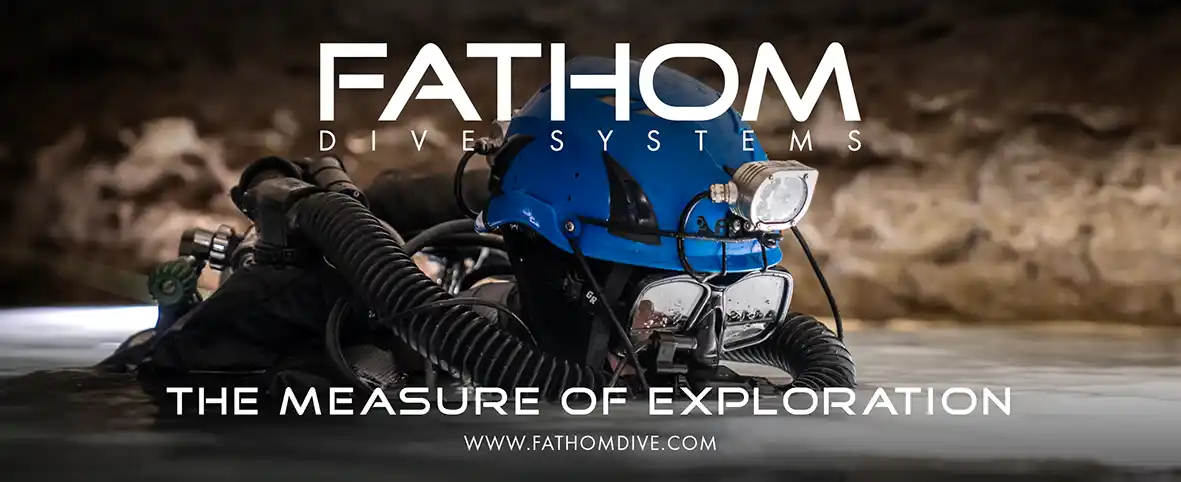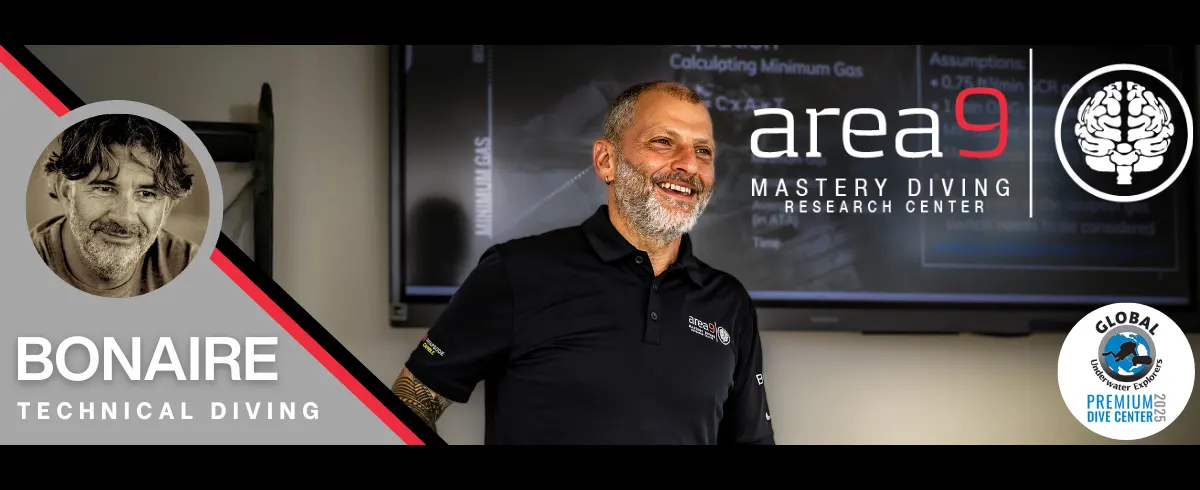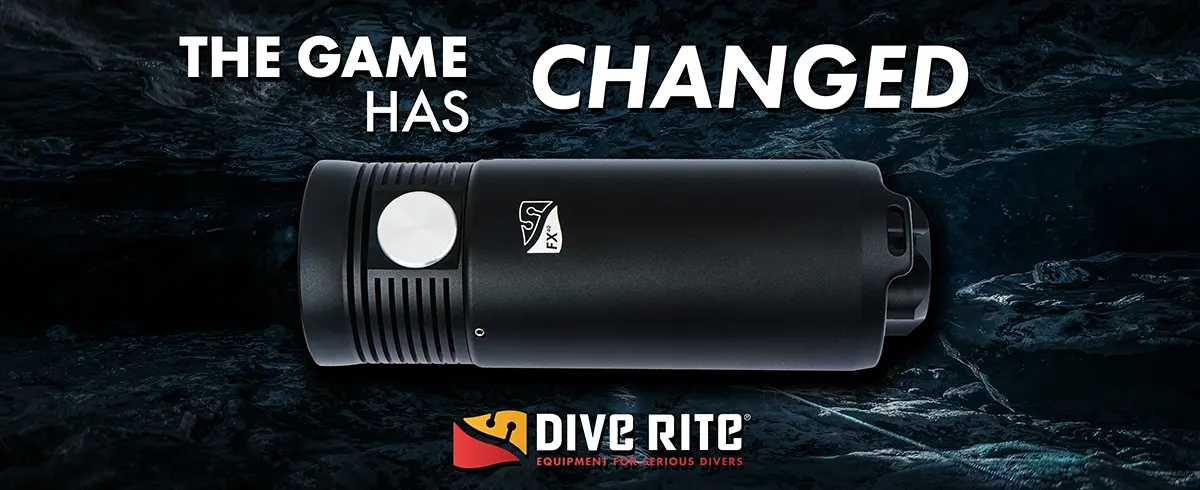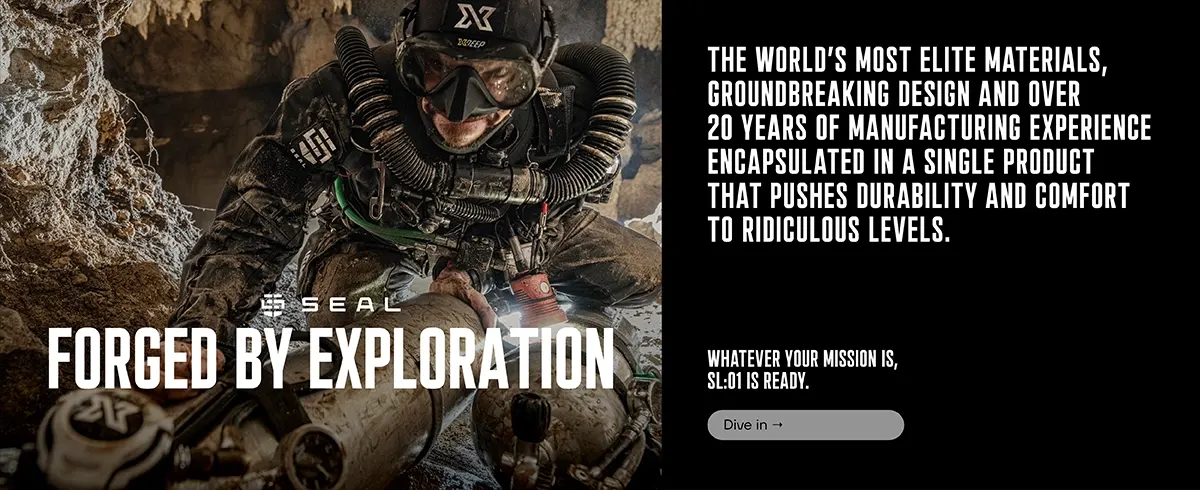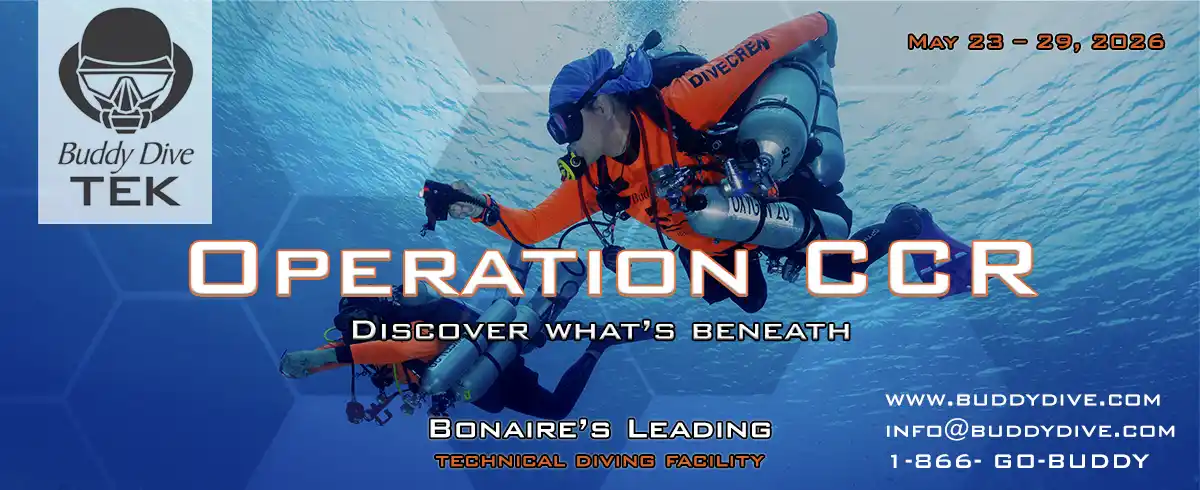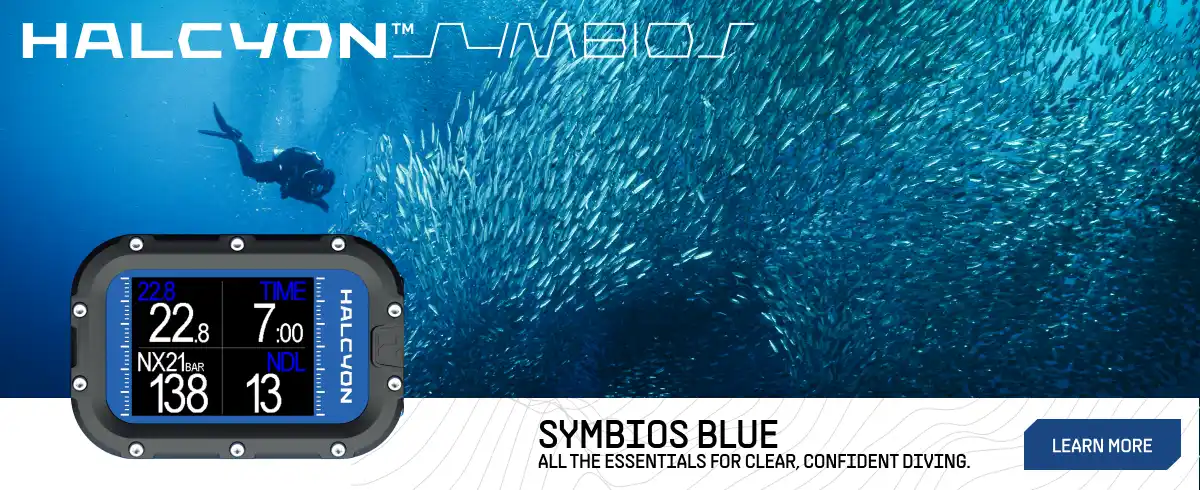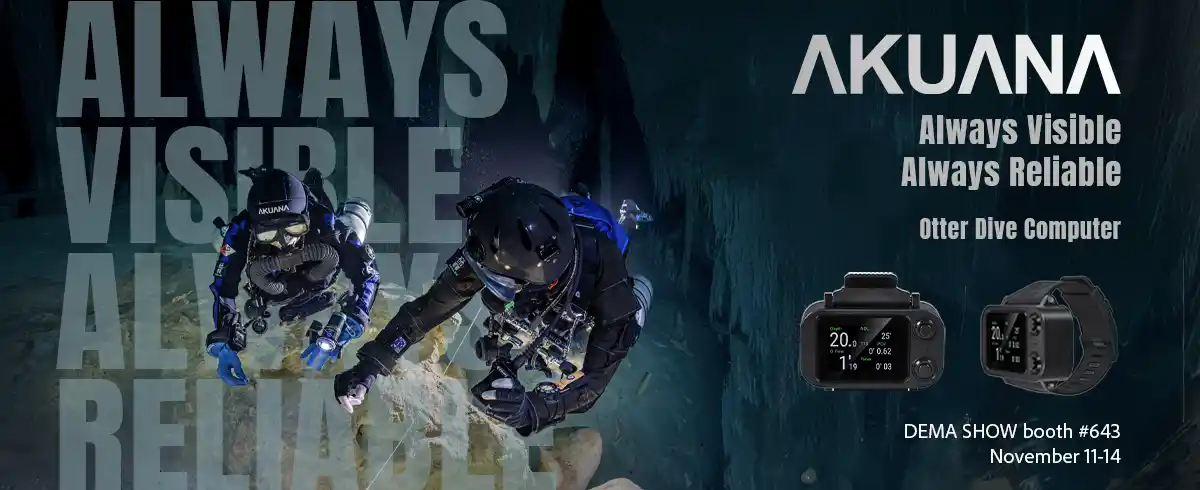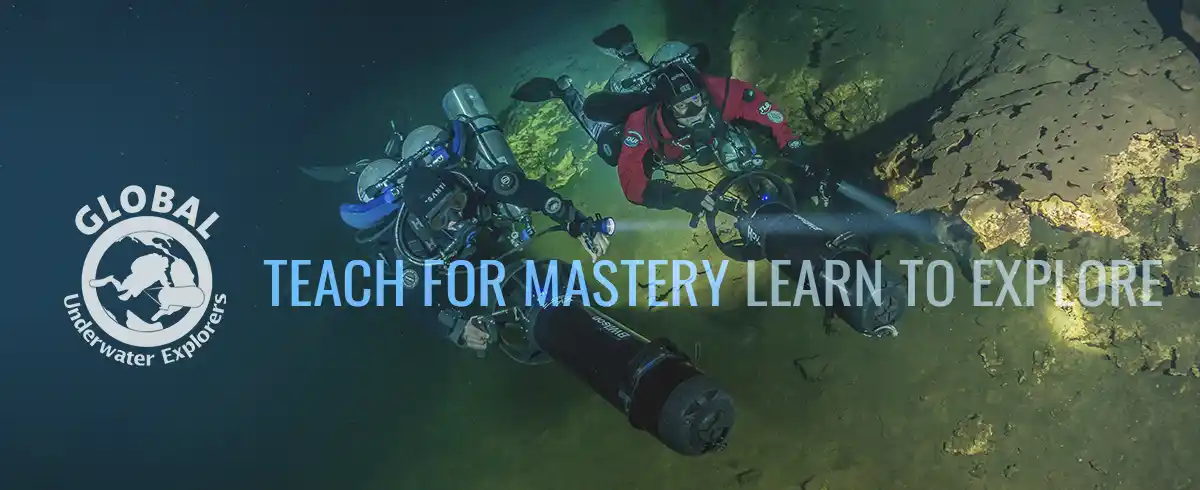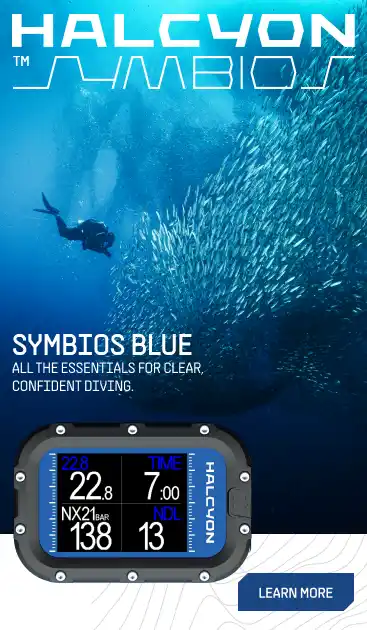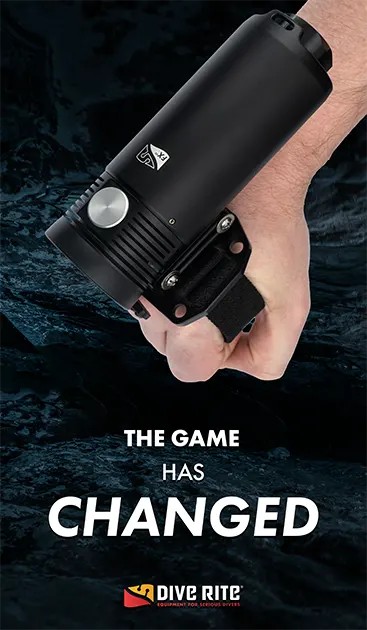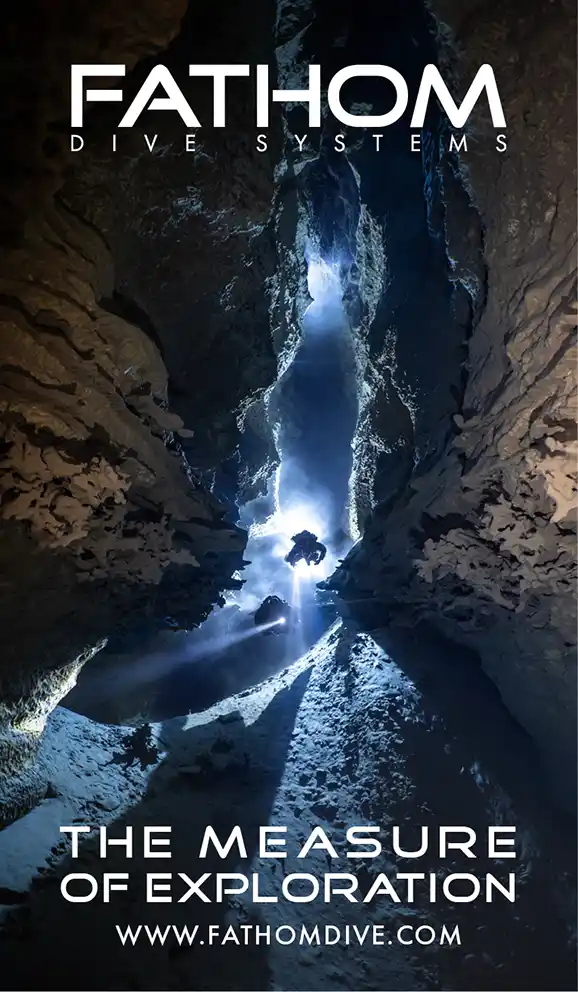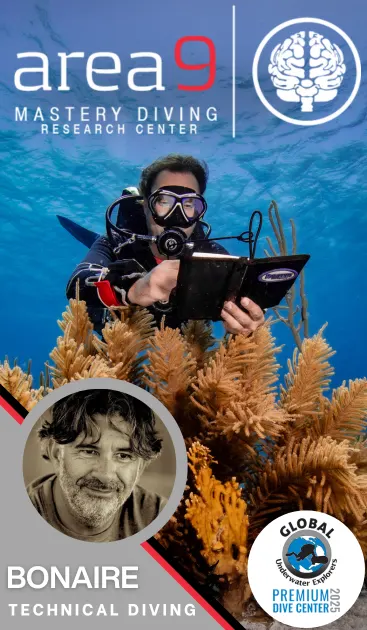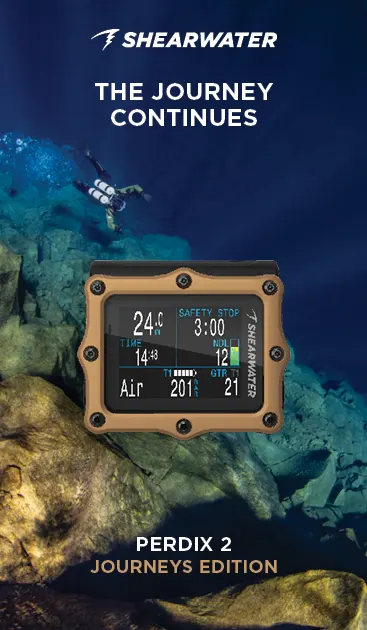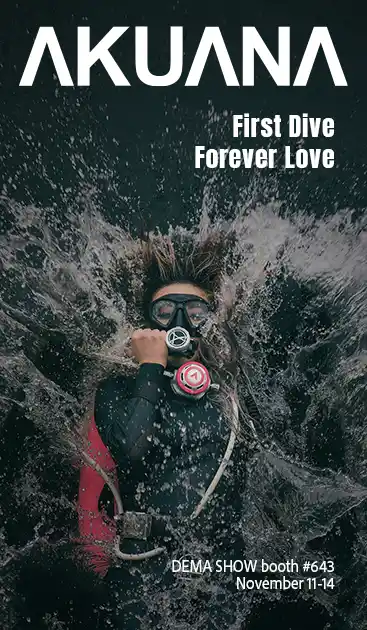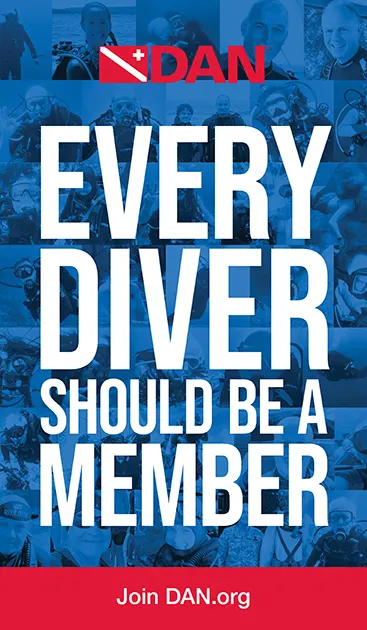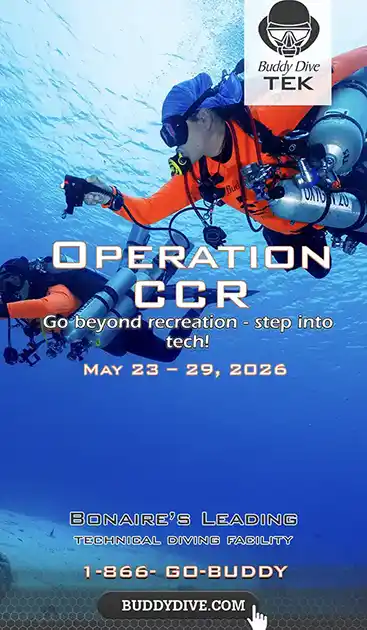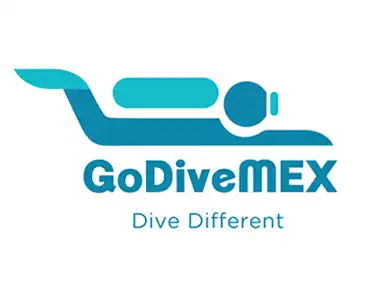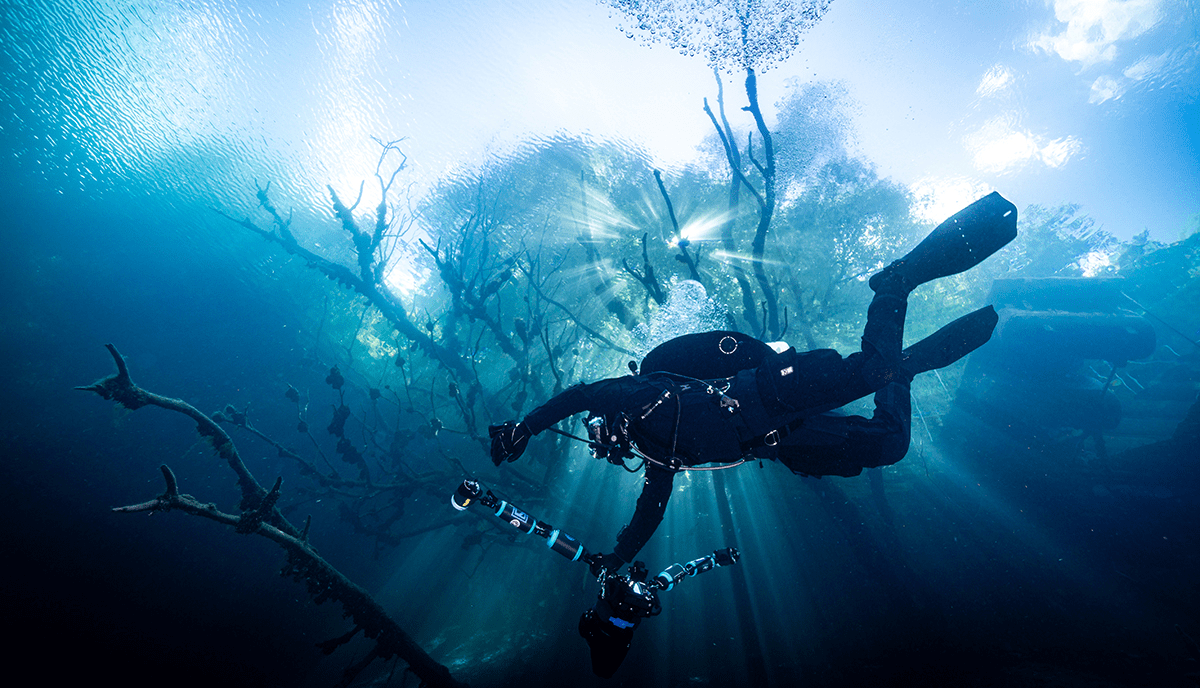
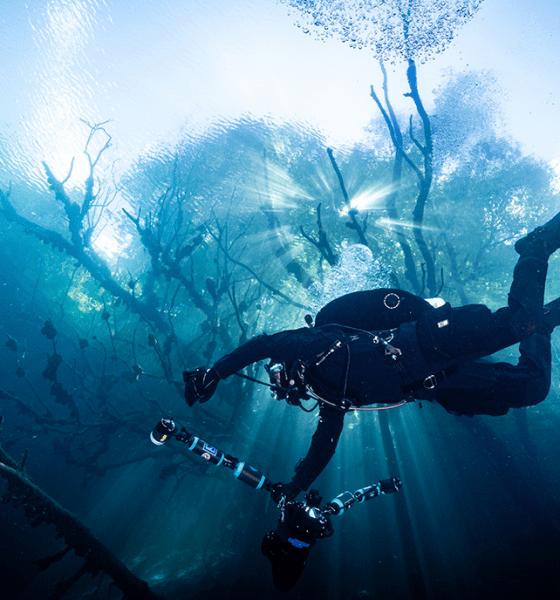
Community
Our Most Read Stories of 2020
Dive into our most read stories of 2020. Can cameras kill? What about those peculiar GUE rebreathers? Gradient factors anyone? Was it a world record dive? Find out.
Header photo by Sean Romanowski
Greetings Tekkies,
This December marks the second full year of publishing InDepth, and what a crazy year it’s been. With the pandemic still raging throughout most of the world, it has been a most challenging year for the diving industry, as I’m sure you’re aware. I would like to take this opportunity to thank you, our readers for your continuing interest and support, and also thank our thoughtful contributors who make the blog possible.
Over the last year, we published nearly 100 InDepth stories covering the latest developments in exploration, technology, training, conservation, diving science & medicine, image making and technical diving culture. We also added select translations into Chinese, Italian, and Spanish . In doing so, I believe that we have grown our coverage in terms of breadth, depth and sophistication. Call it, a geeky labor of love!
In addition, we’ve added some depth-full sponsors to the mix, that have made it possible to grow and sustain InDepth. Our special thanks to DAN Europe, Dive Rite, Divesoft, Fourth Element, Halcyon, The Human Diver, and Shearwater Research. May your brands continue to flourish!
Similar to 2019, we celebrate the coming new year with our Most Read Stories from 2020/2019. If you like what you read, please SUBSCRIBE, it’s free! That will ensure you’ll get our latest stories and content delivered to your inbox. Here’s to a hopefully wet and most excellent 2021!
—Michael Menduno/M2

1. Cameras Kill Cavers Again
Cave explorer, photographer and instructor Natalie L Gibb wants to make “taking pictures” the sixth rule accident analysis. How can toting a camera underground get you into trouble? Take a breath, clip off your camera, and say cheese, Gibb will explain.

2. The Thinking Behind GUEs Closed Circuit Rebreather Configuration
GUE is known for taking its own holistic approach to gear configuration. Here GUE board member and Instructor Trainer Richard Lundgren explains the reasoning behind its unique closed-circuit rebreather configuration. It’s all about the gas!

3. Gradient Factors in a Post Deep Stop World
World-recognized decompression physiologist and cave explorer David Doolette explains the new evidence-based findings on “deep stops,” and shares how and why he sets his own gradient factors. His recommendations may give you pause to stop (shallower).

4. Fact or Fiction: Revisiting the Guinness World Record Dive
Newly released information calls into question the validity of former Egyptian Army Colonel and instructor trainer Ahmed Gabr’s 2014 world record scuba dive to 332 m/1,090 ft in the Red Sea. InDepth editor-in-chief Michael Menduno reports on what we’ve learned, why this information is coming out now, and what it all may mean.

5. Can We Save Our Planet? What About Ourselves? Interview With Sea Shepherd founder Paul Watson.
Managing editor Amanda White poses the BIG questions to environmental activist Captain Paul Watson, founder of Sea Shepherd Conservation Society and the architect behind its strategy of aggressive non-violence. His answers may surprise you—and even bring you to tears. What motivates the 70-year Environmental Hero of the 20th Century to keep up the fight despite widespread ignorance, apathy and greed? Find out.

6. Isobaric Counter Diffusion in the Real World
Isobaric counterdiffusion is one of those geeky, esoteric subjects that some tech programs deem of minor relevance, while others regard it as a distinct operational concern. Divers Alert Network’s Reilly Fogarty examines the physiological underpinnings of ICD, some of the key research behind it, and discusses its application to tech diving.

7. Deepest Freshwater Flooded Abyss in the World
The efforts to explore and map Hranice Abyss, located in Hranice (Přerov District) in the Czech Republic span more a century. Currently, the monstrous chasm is known to reach 384 m/1260 ft deep. Explorer and member of the Czech Speleological Society Michal Guba has the deets.

8. Urination Management Considerations for Women Technical Divers
Tech diver and doctoral student, Payal Razdan, offers an in-depth review of the options available to women tech divers for handling the call of nature.

9. Situational Awareness and Decision Making In Diving
Situational awareness is critical to diving safety, right? But how much of your mental capacity should be devoted to situational monitoring, e.g., How deep am I? How much gas do I have? Where is my buddy? Where is my boat? More importantly, how does one develop that capacity? Here GUE Instructor Trainer Guy Shockey, who is also a human factors or non-technical skills instructor, explores the nature and importance of situational awareness, and what you can do to up your game.

10. Examining Early Technical Diving Deaths
The early days of technical diving were marred by an alarming number of fatalities that threatened the viability of this emerging form of diving. Here InDepth editor-in-chief Michael Menduno presents the original accident analyses of 44 incidents that resulted in 39 fatalities and 12 injuries, as reported in aquaCORPS Journal and technicalDIVER in the early to mid 1990s.

11. A Voice In The Wilderness
Just when you thought you’ve seen it all, along comes underground picture-maker SJ Alice Bennett, who is shedding new light on the dark, moody, twisting karst passageways that form what explorer Jill Heinerth calls “the veins of Mother Earth.” If you’re ready for a new perspective on the ‘doing of cave diving,’ switch on your primary and dive right in.


